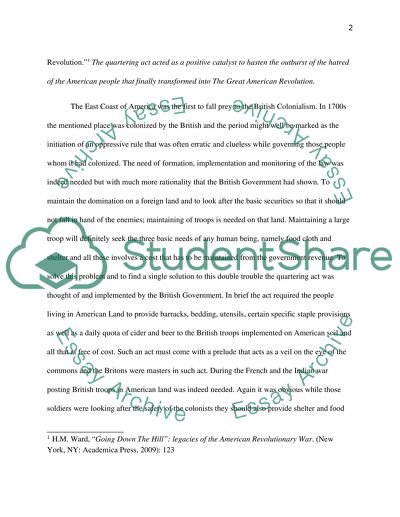Cite this document
(“The quartering of british soldiers during the american revolution Essay”, n.d.)
Retrieved from https://studentshare.org/environmental-studies/1420981-the-quartering-of-british-soldiers-during-the
Retrieved from https://studentshare.org/environmental-studies/1420981-the-quartering-of-british-soldiers-during-the
(The Quartering of British Soldiers During the American Revolution Essay)
https://studentshare.org/environmental-studies/1420981-the-quartering-of-british-soldiers-during-the.
https://studentshare.org/environmental-studies/1420981-the-quartering-of-british-soldiers-during-the.
“The Quartering of British Soldiers During the American Revolution Essay”, n.d. https://studentshare.org/environmental-studies/1420981-the-quartering-of-british-soldiers-during-the.


